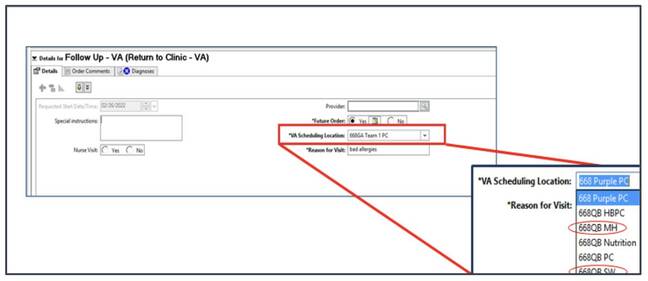This article is more than 1 year old
US Veterans Affairs hits brakes on $10b Oracle Cerner health record system
Nothing like medical orders routed into /dev/null and other problems to hold up a roll out
The US Department of Veterans Affairs (VA) this week announced it is delaying pending deployments of the Oracle Cerner electronic health record (EHR) system until June 2023 because of ongoing problems with the system.
"Right now, the Oracle Cerner electronic health record system is not delivering for Veterans or VA health care providers – and we are holding Oracle Cerner and ourselves accountable to get this right,” said Deputy Secretary of Veterans Affairs Donald Remy, in a statement.
Remy said VA is halting all electronic health record deployments to assess how the systems perform and to address patient concerns.
"Veterans and clinicians deserve a seamless, modernized health record system, and we will not rest until they get it," he said.
The EHR system has numerous problems, according to government reports. Among them is its tendency to route medical orders into "the unknown queue" where they languish unnoticed by medical staff.
The purpose for this queue is to allow the system to accept orders from healthcare providers that cannot be routed to the intended location. It consists of a drop-down menu containing a list of locations that, depending on the nature of the order, do not get mapped to an actual location. These orders, associated with no place in particular, would end up in an unknown queue and would not get seen or processed by care providers. It's as if the system allowed patients to be scheduled for surgery at Hogwarts or to submit support tickets to /dev/null.

Screenshot of Oracle Cerner EHR system highlighting locations that don't actually exist ... Click to enlarge
Cerner, based in North Kansas City, Missouri, was awarded a $10 billion contract to modernize the VA's EHR system in 2018; Oracle, based in Redwood Shores, California, acquired the health technology company on June 8, 2022.
Cerner's VA engagement is not the first to run into headwinds. In 2015, the company won a $4.3 billion EHR modernization contract from the US Department of Defense. At a June 26, 2018 hearing before the House Committee on Veterans' Affairs, Beto O'Rourke, then a US Representative for Texas, cited an April 30, 2018 Defense Department report [PDF] that contained 156 complaints of critical deficiencies with the Cerner's Military Health System GENESIS deployment for the military.
"There were reports that clinicians literally quit because they were terrified that they might hurt or even kill one of their patients," Rep. O'Rourke (D) said, addressing then Acting Secretary of Veterans Affairs Peter O'Rourke. "The user score out of a possible 100 was 37."
The Pentagon continues to defend and deploy the system, though it remains a work-in-progress [PDF].
The VA healthcare system makeover faces similar issues, including latency and slow response times, and problems with patient scheduling, referrals, medication management, and assorted medical orders.
- Microsoft attempts to eat Oracle's database lunch with Azure migration service
- UK hospitals fall back on pen and paper after Oracle Cerner outage
- Computer glitches harmed 'nearly 150' patients after Oracle Cerner system go-live
- Oracle plans US database for electronic health records
It's been delayed three times under the Biden administration. In July 2022, VA Secretary Denis McDonough postponed EHR deployments until January 2023 to ensure that the record system's issues had been resolved. And in July 2021, the VA decided to delay deployments at additional sites for six month after problems surfaced at its initial deployment in Spokane, Washington. The project was also delayed twice under the Trump administration.
The new EHR system, already operational at five locations, is slated to be deployed at 25 VA Medical Centers in FY 2023. Before that happens, serious problems need to be ironed out.
A July report from the VA Inspector General found more than a thousand safety events and at least one "catastrophic patient harm" attributed to system shortcomings.
"From October 24, 2020, through May 8, 2022, VHA [Veterans Health Administration] identified 1,134 total patient safety events related to the new EHR," said VA Deputy Inspector General David Case in a statement [PDF] for a July Senate hearing. "VHA’s analysis identified one catastrophic patient harm (death or major permanent loss of function) and two major patient harm cases (permanent lessening of bodily functioning), one of which was related to the unknown queue."
Oracle did not respond to a request for comment on Friday. ®
